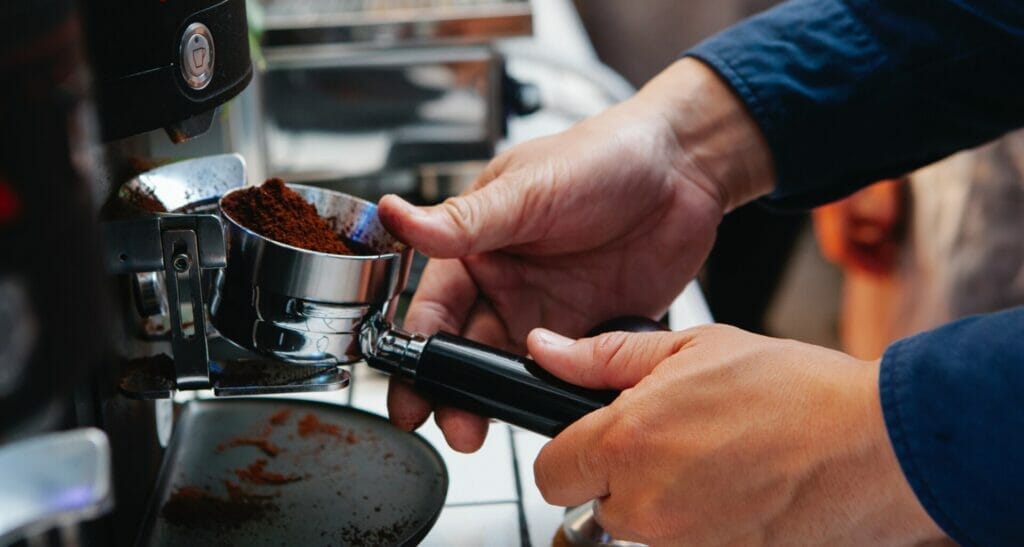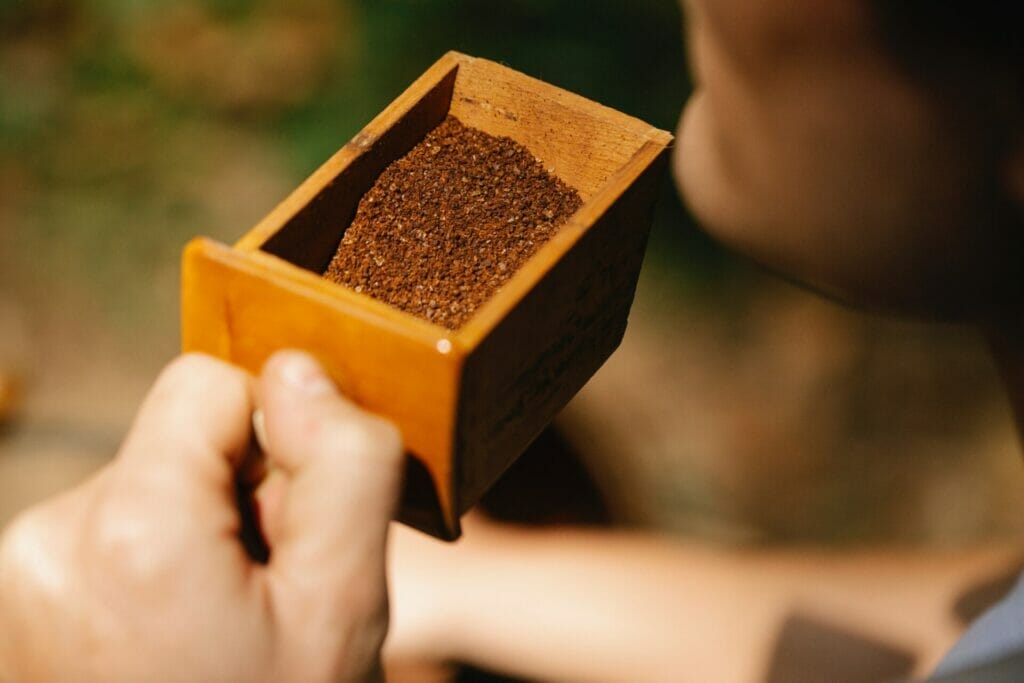When Does Coffee Kick In?
When you drink a cup of coffee, when does the caffeine kick in? Upon drinking your morning cup of joe, it typically takes between 10-15 minutes for the caffeine to be absorbed into your bloodstream.
Once this happens, you’ll begin to feel more alert and energetic and any drowsiness or fatigue should start to disappear. However, it may take up to an hour for the full effects of the caffeine to be felt. The heart rate, body temperature, blood pressure, and blood sugar levels rise during this reaction.

Additionally, there are some factors that can influence how quickly the effects of a regular coffee kick in. These include body weight, activity level prior to drinking, whether you’ve eaten food beforehand, any medications you’re taking, and even genetics! Taking these factors into account means that for some people cups of coffee might take long-term effects faster than others.
How Long Does It Take For The Coffee To Kick In?
When you drink your 8-ounce cup of coffee, the time it takes for it to ‘kick in’ and start working its magic can vary depending on a few factors – your weight and metabolism, the type of beans and its caffeine content, as well as how much food is in your stomach when you drink it.
Generally speaking, you’ll feel a noticeable improvement between 15 minutes and 1 hour after consuming your caffeinated beverage. Depending on how strong the brew is and how your body processes caffeine, this effect can range from subtle to quite noticeable.
Does Coffee Give You Energy Right Away?
The question of whether coffee gives you energy right away or not is one that many coffee drinkers ask. While the effects of coffee may vary from person to person, it does indeed provide an instant kick or jolt of energy for most people who drink it.

Depending on your sensitivities and tolerance to caffeine, a single cup of coffee can give someone anywhere from a boost in alertness to an uplifted mood.
What Is The Impact Of Caffeine On The Body?
Caffeine’s effects on the body are quite powerful and can be felt almost immediately after consumption. It typically takes around fifteen minutes for caffeine to reach its peak levels of physiological effect, with some feeling its impact faster than others.
Once this occurs, the stimulant impacts your central nervous system, increases your alertness and cognitive functioning as well as gives you a surge of energy. With regular caffeine intake, however, your body can build a tolerance over time, meaning you will need more of it to achieve the same result over time.
How Much Caffeine Is Excessive?
Caffeine can be a great energy booster, but it’s important to know when and how much to consume. Excessive caffeine consumption has been linked to jitteriness and restlessness, so it’s important to know your limit.
Generally speaking, adults should limit their daily caffeine intake to 400 milligrams or less. Consuming more than this amount of caffeine on a regular basis might cause excessive stimulation and distress in the body.

What Are The Symptoms Of Caffeine Overdose?
Caffeine overdose occurs when a person takes in more than the recommended daily amount of caffeine. Symptoms of caffeine overdose can include restlessness, shakiness, rapid breathing, an increased heart rate, confusion, agitation, and irritability. Other symptoms may also include high blood pressure and nausea.
In severe cases, caffeine overdose can result in seizures and other neurological disturbances. If you suspect that you may have overdosed on caffeine, it’s important to seek medical attention immediately. Caffeine is a drug that carries its own risks so taking too much can be dangerous.
Who Should Stay Away From Caffeine?
Caffeine is an extremely popular stimulant that can be found in coffee, tea, energy drinks, soft drinks, and more. While it does provide a temporary boost to alertness and focus, there are certain individuals who should stay away from caffeine altogether.
This includes people with anxiety disorders, as caffeine can worsen the body’s anxiety response. Those with heart problems or high blood pressure should also avoid caffeine due to its stimulating effects on the cardiovascular system.
Is Caffeine Addictive?
When it comes to coffee, one of the most common questions is whether or not caffeine is addictive. Coffee and other beverages that contain caffeine are consumed regularly by many people and while they may feel energized after consuming them, they can become dependent on this feeling.

Excessive consumption of caffeine can lead to addiction, which means the body no longer has natural energy and relies on the stimulant effects of caffeine can make you stay alert and active. Caffeine also affects sleep creating a vicious cycle in which more caffeine must be consumed to combat fatigue caused by lack of sleep.
How Is Caffeine Used In Medications?
Caffeine is often used in medications to treat various conditions, such as headaches and fatigue. It works by stimulating certain parts of the central nervous system, which causes alertness and increases energy levels. Caffeine levels can also work as a diuretic to help reduce water retention in the body.
In addition to being used as an ingredient in over-the-counter medications, caffeine from coffee is also found in many prescription drugs, such as those prescribed for attention deficit hyperactivity disorder (ADHD) and narcolepsy. These meds typically contain stimulants such as amphetamine or dextroamphetamine.
What Are Some Methods For Quitting Caffeine?
Quitting the caffeine habit can be difficult, but it doesn’t have to be a daunting task! A few different methods can help you say goodbye to your beloved coffee.
You should taper off your caffeine intake gradually over time. Reduce the number of caffeinated drinks you consume per day and replace them with herbal teas or decaf coffee. You should also avoid consuming large amounts of caffeine in beverages late in the day as this can disrupt your sleep patterns and make it harder for you to quit in the long run.
What Are The Side Effects Of Caffeine Withdrawal?
When people talk about the effects of caffeine, they often focus on the positive benefits like increased energy and alertness. But it’s also important to consider the side effects of caffeine withdrawal.

Caffeine works by blocking receptors in our brains that control feelings of drowsiness and alertness, so when we suddenly stop drinking coffee or other caffeinated products, it can cause some significant changes in our bodies. These include headaches, fatigue, difficulty concentrating, mood swings, decreased energy levels, and cravings for more caffeine.
